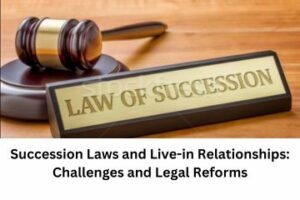Justifiable and Excusable defences under the IPC
Written By: Shreem Thite
Introduction
Indian Penal Code encompasses a wide range of punishments that differ in every case. However, a person does not always have to be punished for a crime that he or she has done.
There are exceptions to every rule, and each offence has its own set of rules. The IPC was written with the assumption that there would be no exceptions in criminal proceedings, which was a serious flaw. As a result, the Code created a distinct Chapter IV that applies to the entire notion.
In Chapter 4 of the Indian Penal Code, 1860, under the heading “General Exceptions,” defences are recognized. These defences are covered by sections 76 to 106 of the IPC. Certain legal defences exist to absolve a person of criminal liability. These defences are premised on the basis that even if a person commits a crime, he cannot be held responsible. This is because, at the time of the offence, the circumstances were either such that the person’s act was justified or his condition was such that he could not create the necessary men’s rea for the crime. The defences are divided into two categories: justifiable and excusable.
Excusable Defences
Acts that are exempted from criminal liability are referred to be excusable. When the accused did not have any inferable guilty intention at the time of the act, and the offence needed the presence of guilty intention to complete the commission of the crime, an excuse is granted. As a result, the accused is exempt from punishment for the offence.
- Mistake of fact [Section 76 and 79]
Mistake of Fact- Sections 76 and 79 outline two separate scenarios in which a mistake of fact might be used as a defence. Section 76 of the Act allows for a defence if the accused has committed an act but believes in good faith that he was legally bound to do so due to a mistake of fact. In the instance of Section 79, the defence is applicable if the accused thinks in good faith that his act is legally justified due to a mistake of fact.
- Accident [Section 80]
Section 80 exempts an accident that transpires while doing a legal act. In the absence of a criminal intent to do such an act, it is absolved. When an accused causes injury to another person without having any criminal intention or knowledge of doing so, the court will consider the incident to be an accident if the accused did not do so intentionally or negligently.
- Infancy [Section 82 and 83]
Section 82 of the Criminal Code covers the defence provided in the case of any offence committed by a child under the age of seven, as it is presumed that a child under the age of seven is mentally incompetent and so cannot be held criminally liable. Section 83 further exempts a child over the age of seven but under the age of twelve from criminal liability if the offence is committed by a child who has not acquired sufficient maturity to perceive the implications of the act committed.
- Unsoundness of mind [Section 84]
A person who is mentally incapacitated is protected from criminal liability under section 84 because they are unable to understand the nature and consequences of their actions. Section 84 considers the following types of mental illness:
(1) A lunatic who has been insane since infancy.
(2) A person who is unable to think owing to illness.
(3) A lunatic who exhibits unsound mental health at times.
- Intoxication [Section 85]
Section 85 is a provision that can be viewed as an extension of Section 84. If the accused was intoxicated at the time of the crime and was unable to understand the nature and consequences of the crime, he is exempt from criminal accountability.
Justifiable Acts
Justifiable defences are those that are provided in circumstances when the accused’s actions are legally justified. Such activities are deemed crimes under regular conditions, yet they are regarded as bearable and non-punishable under particular situations. Justifiable defences are those acts that are only accepted in specified conditions.
- Judicial Acts [Section 77 and 78]
Section 77 of the Judicial Act provides a defence to judges who are acting judicially and believe in good faith that such power has been granted to them by law. As a result, this rule protects judges from criminal procedure. A person who has committed an act by an order or judgment of the Court of Justice is entitled to a defence under Section 78. This is a unique clause that allows a mistake of law to be used as a defence to a limited extent.
- Necessity [Section 81]
Act likely to inflict injury but not with the purpose to commit a crime, and to prevent further injury. Nothing constitutes an offence just because it is done with the knowledge that it is likely to cause injury, as long as it is done without any criminal intent to cause harm and in good faith to prevent or avert additional injury to a person or property. Given the act done was necessary to contemplate the entire scenario.
- Consent [Section 87, 88 and 89]
The clauses that recognize consent as a defence are founded on the maxim volenti non fit injuria, which states that he who consents does not incur any harm. Consent can be given explicitly or implicitly. The clauses that provide this defence are most commonly invoked to excuse the act in cases of medical negligence, where the doctor performed surgery or therapy with the patient’s agreement.
- Communication [Section 93]
Section 93 of the Criminal Code states that communication conducted in good faith is not considered an offence. The harm caused cannot be punished if the communication is meant to benefit the other person.
- Duress [Section 94]
If a person does an act under duress, he is free from criminal liability under Section 94. However, where the offences include murder and against the state, this section does not give protection. Because offences against the state endanger national security, they cannot be used as a defence.
- Trifles [Section 95]
Section 95 is founded on the maxim de minimis noncurates, which implies that the law ignores trivial matters. If the acts are insignificant and a person of ordinary intelligence and temper would not consider them harmful, they are justified and supplied as defences.
Private Defences
In certain cases, sections 96 – 106 provide for private defences. Section 96 establishes a general rule that no act performed in the exercise of private defence constitutes a crime.
Conclusion
The general defences contained in the IPC play a critical role in defining the scope of criminal offences. Criminal liability holds a person accountable for conduct that is illegal under the law. The Indian Penal Code recognised the fact that not all acts are punishable. Acts that do not need the presence of men’s rea are not punishable.

About the Author
Shreem Thite
4th year
B.A.LLB (Hons.)
Hidayatullah National Law University, Raipur, C.G.
Previous Blogs
Treatment Of Wastewater From Agricultural In India
Validity of Whatsapp Messages in The Court of Law as evidence.
Pardoning Powers Of President And Governor Under Indian Constitution
Keywords:
Justifiable and Excusable, Justifiable and Excusable Defences, Justifiable and Excusable Offences.




